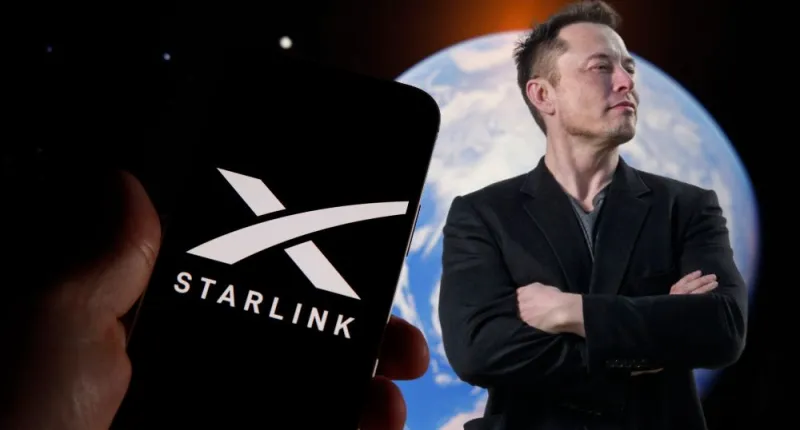Story Covered in the Article
- Starlink is set to begin operations in Pakistan by June, with 90% of the registration process complete.
- The company is securing final regulatory approvals for a commercial rollout.
- Chinese competitor SSST has also applied for a license, increasing competition in satellite internet services.
- Experts predict improved internet access, especially in remote regions.
Starlink Nears Final Approval for Pakistan Launch
Global satellite internet provider Starlink is preparing to launch services in Pakistan by June. According to officials, 90% of the registration process is complete, and the company is finalizing regulatory approvals. Once these are secured, Starlink will be able to provide high-speed internet across the country.
To operate in Pakistan, Starlink must complete its registration with the Pakistan Space Regulatory Board (PSRB). After this step, the Pakistan Telecommunication Authority (PTA) will issue the necessary license. Sources confirm that the process is progressing without issues, keeping the launch timeline on track.
Starlink’s arrival in Pakistan is part of a larger push to expand satellite-based internet access worldwide. The company, owned by Elon Musk’s SpaceX, already provides services in multiple countries, offering fast internet speeds with lower latency compared to traditional satellite providers. The technology aims to bridge the digital divide by connecting even the most remote areas.
Check Out Similar Article of Elon Musk’s Plan: Starlink’s Launch in Pakistan Awaits Approval in 2024 Published on January 7, 2025 SquaredTech
Growing Competition in Pakistan’s Internet Market
Alongside Starlink, Shanghai Spacecom Satellite Technology (SSST), a Chinese firm, has also applied for a license to provide satellite-based internet services in Pakistan. This signals growing competition in the sector, which could drive better services and pricing for users.
SSST is known for its experience in space communications and satellite networking. If approved, it could provide an alternative to Starlink, offering Pakistanis multiple choices for high-speed internet beyond conventional broadband services. The presence of multiple players in the market may encourage competitive pricing and better service quality, ultimately benefiting consumers.
How Starlink Can Improve Internet Access in Pakistan
The introduction of Starlink and SSST could significantly impact Pakistan’s digital landscape. Satellite-based internet has the potential to improve connectivity, especially in remote and underserved areas where traditional broadband services are limited. This expansion aligns with the country’s ongoing digital transformation efforts.
Pakistan has long struggled with inconsistent internet coverage, particularly in rural areas where infrastructure development is slow. Fiber-optic networks, while effective, require extensive investment and time to deploy. Starlink’s satellite-based model eliminates these barriers by delivering internet directly from satellites to user terminals, enabling fast and stable connections in areas where broadband providers have been unable to reach.
In addition to personal use, Starlink could play a crucial role in boosting Pakistan’s economy. Businesses in remote regions, including those in agriculture, tourism, and logistics, stand to benefit from improved connectivity. Reliable internet access can enhance productivity, enable remote work, and expand opportunities for e-commerce and digital services. Educational institutions could also leverage satellite internet to provide better online learning experiences for students in rural regions.
Regulatory Challenges and Future Prospects
While the regulatory process is progressing smoothly, experts caution that final approval remains a critical step. Government agencies will need to ensure that Starlink complies with local data security laws and spectrum regulations. Additionally, pricing structures and service terms will be key factors in determining the company’s success in Pakistan.
If Starlink successfully clears all regulatory hurdles, it could revolutionize internet access across the country. However, the company may face challenges related to affordability, as satellite internet services tend to be more expensive than traditional broadband options. The extent to which Starlink can make its services affordable for the average consumer in Pakistan remains to be seen.
Regulatory authorities remain optimistic about finalizing all processes soon. If everything goes as planned, Pakistan will soon have access to advanced satellite broadband, offering high-speed internet in areas where connectivity has long been a challenge.
Stay Updated: Tech News – Emerging technologies


